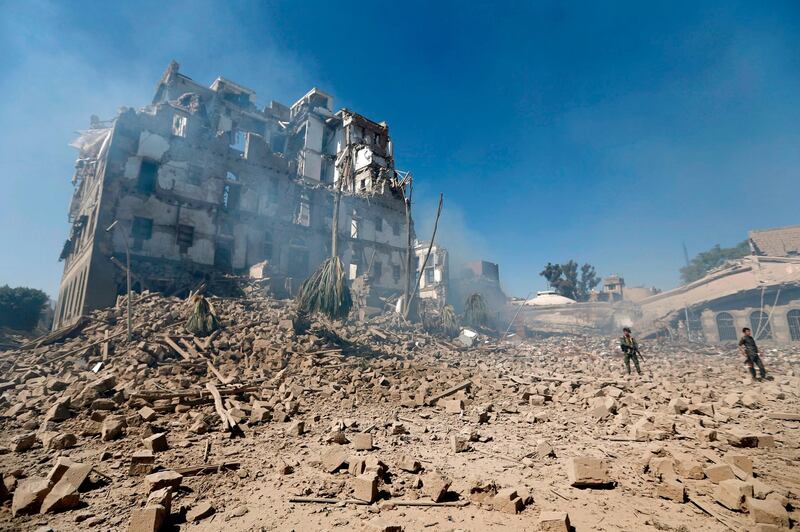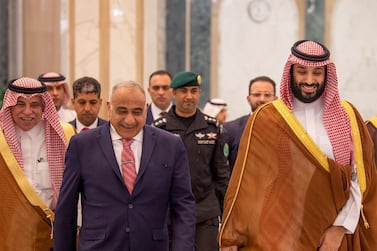Aircraft from the Saudi-led coalition in Yemen on Saturday attacked a camp containing drones near Yemen's presidential palace in the Houthi-controlled capital, Saudi state TV reported.
The Saudi-led coalition backs the government of Abdrabu Mansur Hadi, which was ousted from power in Sanaa by the Houthis in late 2014.
"The coalition staged a selective military operation to destroy a legal military target" a statement by the coalition issued later by the state-run Saudi News Agency (SPA) said on Saturday.
The coalition said the air raids targeted a cave used by the Houthis to store drones in a camp in the vicinity of the presidential complex, which is now controlled by the Houthis.
Yemen's war has killed tens of thousands of people and driven 10 million to the brink of famine. The Arabian Peninsula country is also suffering its third major outbreak of cholera since the conflict began. In December, the warring parties reached a deal at United Nations-led peace talks for a ceasefire and troop withdrawal from the Red Sea port of Hodeidah, Yemen's lifeline for fuel and food.
The withdrawal has stalled, calling into question the UN goal of further talks to agree a framework for political negotiations to end the war. Violence and displacement also continue in other parts of Yemen not subject to the ceasefire.
While the two sides have agreed to the redeployment of forces, they have been divided over who will run the port of Hodeidah once they pull out. The UN-brokered deal reached in Stockholm was vague on that point, saying only that a "local force" would take over without specifying who would lead it.
On a positive note, UN Security Council members welcomed Monday's announcement by the UN envoy for Yemen, Martin Griffiths, that the government and Houthis had reached agreement on the military plan for the initial redeployment of forces from Hodeidah. They urged the rival parties to engage with Mr Griffiths and the head of the UN operation monitoring the withdrawals "to swiftly agree on local security force arrangements" and on the second phase of the redeployment.
The UN Security Council also called on both parties "to implement the redeployment plans as soon as possible and not seek to exploit the redeployment process".
The council statement did not single out any party for delaying implementation of the Stockholm agreement. But it reaffirmed "their commitment to monitor the parties' compliance with the redeployment plans".







